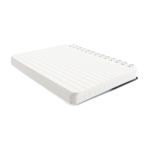Hi Rowan, I went through the same things so can share some experience.
From other postings, it seems this is common, so not to worry.
About repertoire:
1. You pick the songs! This doesn’t necessarily have to do with how to increase repertoire but bears repeating. You will spend lots of time with these songs so pick well. Pick songs that you LOVE to play, that are within your difficulty range. Beware of just picking songs from the “accordion industrial complex.”
2. Keep a strong list. List the songs you can play well. That means you can play them at an acceptable level each time, even with not playing them for a couple days. Memorize them if you can.
3. Work on one (or maybe 2) new songs at a time. Let’s say you have 2 songs down. Pick one more and don’t leave it until you either have it or abandon it. This can be really difficult but is necessary. Have one song you are really working at, but take some time in your practice to have fun! You will get this new song to an acceptable level, but it needs to stew in your mind. You need to play it regularly for a week, a month, whatever.
4. Put the songs that you “have” in one notebook, separate from the others. This is your repertoire. Play through it every day or 2. If you can’t play one from your repertoire, stop, work on it before adding anything new. Keep another notebook of songs you would like to play. This second notebook will contain your “stewing” songs that are not ready for the “final” notebook.
5. When working on a song, make sure you can sing the words or melody by heart before you start working on it. Seems obvious, but took me a while to figure out.
Working at building repertoire is my life, only because like you, I didn’t have it. I was forced to by volunteering to play at the farmers market. You will likely need some motivation to build. If you don’t do gigs, no problem, play for your friends and family, post on YouTube. Do what ever you can to get your music heard in a non stressful way. This will verify your repertoire.
Imho practicing scales, chords and arpeggios is very helpful, and will serve you well regardless of what you play but is not “necessary” to building repertoire. Others have posted how to incorporate them in your practice.
Lessons with a good teacher are gold, but finding one at a price you can afford will be tricky. Like try to get a competent electrician to your house for an hour for less than $250. An accordion teacher deserves as much so it’s difficult unless you are a retired dentist.
Here’s how I practice. I start with some warm up. Almost always “Amore Mio non Piangere” and/or one or two other songs I “have.” Then I go on to working on the “stewing” songs which are marked in the second notebook. I may be able to move one to the final book. Then on to working on my “new” song. I may arrange it, listen to other versions, etc. Other posts discuss how to work out the parts of a song. Again, stay in your difficulty comfort zone. It’s ok to work on something way above your level, but not as a regular repertoire piece.
I also arrange all of my music. This helps with familiarity of look, and I always arrange in one of 4 keys only. At this point in your life do you really need 5 or 6 flats?
This is only my 2 cents for what it is worth. I hope I have provided some tips to make your journey easier.

